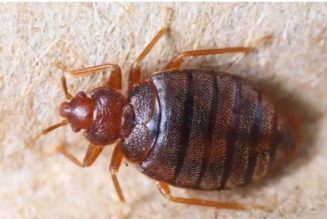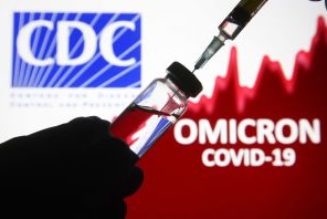Advertisement
Researchers have provided strong evidence that a healthy lifestyle may significantly reduce mortality in adults who have survived pediatric cancer, according to a new study published by Dixon et al in The Lancet. The findings are among the first to reveal that the specific primary causes of mortality in long-term cancer survivors may include many of the same leading causes of mortality for individuals in the general population.
Background
Treatments for pediatric cancers have improved to the point where over 85% of U.S. patients are effectively cured of their primary tumors after front-line treatment. As more patients survive pediatric cancer, there is a growing population of adult survivors.
The Childhood Cancer Survivor Study is the largest cohort of cancer survivors in North America, representing an estimated 20% of all pediatric cancer survivors in that region.
Empowering Survivors With the Numbers
In a new report from the Childhood Cancer Survivor Study, researchers used detailed health data from thousands of study participants to statistically isolate the variables contributing to pediatric cancer survivors’ higher mortality rates. They showed that even when common confounders such as sociodemographic features were controlled for, the gap in mortality between survivors and the general public persisted—but so did the protective effects of a healthy lifestyle.
The researchers found that adults who survived pediatric cancer had four times the risk of late mortality as the general population—even 40 years after diagnosis. However, the researchers also discovered that pediatric cancer survivors without certain modifiable lifestyle and cardiovascular risk factors had a lower risk of mortality, suggesting that patients in this population may be able to improve their chance of survival. Pediatric cancer survivors who maintained a healthy lifestyle—defined as having a healthy weight, refraining from drinking more than moderate amounts of alcohol and smoking, and exercising at or above the intensity recommended by the U.S. Centers for Disease Control and Prevention guidelines—demonstrated a 20% lower risk of mortality compared with those following an unhealthy lifestyle.
“These findings provide important evidence that the high risk for mortality that this population faces may be able to be reduced through changes in their health behaviors,” explained senior study author Greg Armstrong, MD, MSCE, Chair of the Department of Epidemiology and Cancer Control and Co-Leader of the Cancer Control & Survivorship Program at the St. Jude Children’s Research Hospital. “This is important because our goal is to extend the life span of [pediatric cancer] survivors and to improve their health span as well,” he continued.
In addition to modifiable lifestyle risk factors, the researchers identified several major risk factors for cardiovascular disease and related conditions that were associated with a higher risk of mortality among adults who survived pediatric cancer. Patients with hypertension or diabetes had a significantly higher mortality rate than those without the conditions. However, the cardiovascular risk factors were also modifiable.
“Much research has demonstrated that survivors are vulnerable to early onset of chronic disease and mortality,” emphasized co–study author Melissa Hudson, MD, the Charles E. Williams Endowed Chair of Oncology-Cancer Survivorship, Director of the Cancer Survivorship Division, and Co-Leader of the Cancer Control & Survivorship Program at the St. Jude Children’s Research Hospital. “The study highlights the importance of encouraging [pediatric cancer] survivors to practice healthy behaviors and maintain good control of cardiovascular disease risk factors to improve their health span and life span,” she added.
Excess Mortality and Cause of Mortality in Pediatric Cancer Survivors
“We identified that long-term survivors of [pediatric] cancer are experiencing a large number of deaths in excess of what would be expected for the general, aging population,” underscored lead study author Stephanie Dixon, MD, MPH, an assistant member of the Departments of Oncology as well as Epidemiology and Cancer Control in the Divisions of Cancer Survivorship and Leukemia/Lymphoma at the St. Jude Children’s Research Hospital. “[D]ecades after treatment, these excess deaths are predominantly due to the same leading causes of death as in the general population—including second cancers, [cardiovascular] disease, cerebrovascular disease/stroke, chronic liver and kidney disease, and infectious causes of death—[and are typically] experienced at a younger age and higher rate in [pediatric] cancer survivors,” she stressed.
Conclusions
“What was most exciting to see was that independent of prior treatment exposures and sociodemographic factors, a healthy lifestyle and absence of hypertension or diabetes were each associated with a reduced risk of [cardiovascular-associated] mortality,” Dr. Dixon said. “This suggests that [although] continued efforts to reduce treatment intensity while maintaining (or improving) 5-year survival are needed, future research should also focus on interventions for modifiable lifestyle and cardiovascular risk factors—which may need to be specifically tailored to survivors with the goal of reducing chronic disease development and extending the life span of survivors of [pediatric] cancer.”
Patients who had been treated with more intensive therapies continued to experience higher mortality rates than other cancer survivors. Many studies have focused on minimizing the harms of therapy, but many survivors involved in the study were treated before improved techniques were widely available. The findings demonstrated that physicians and researchers may need to consider interventions that can decrease risks for pediatric cancer survivors who were treated with aggressive therapies.
“The Childhood Cancer Survivors Study continues to provide important insights into the long-term outcomes of the growing number of [pediatric patients] successfully treated for cancer,” said co–study author Leslie Robinson, PhD, Chair Emeritus of the Department of Epidemiology and Cancer Control at the St. Jude Children’s Research Hospital. “The findings from the current analysis further emphasize the need to expand our efforts to reduce acute, chronic, and late-onset toxicities of treatment—particularly those toxicities that can directly or indirectly result in premature mortality.”
Disclosure: The research in this study was supported by grants from the National Cancer Institute, a St. Jude Children’s Research Hospital Cancer Center Support grant, and the American Lebanese Syrian Associated Charities. For full disclosures of the study authors, visit thelancet.com.
The content in this post has not been reviewed by the American Society of Clinical Oncology, Inc. (ASCO®) and does not necessarily reflect the ideas and opinions of ASCO®.










